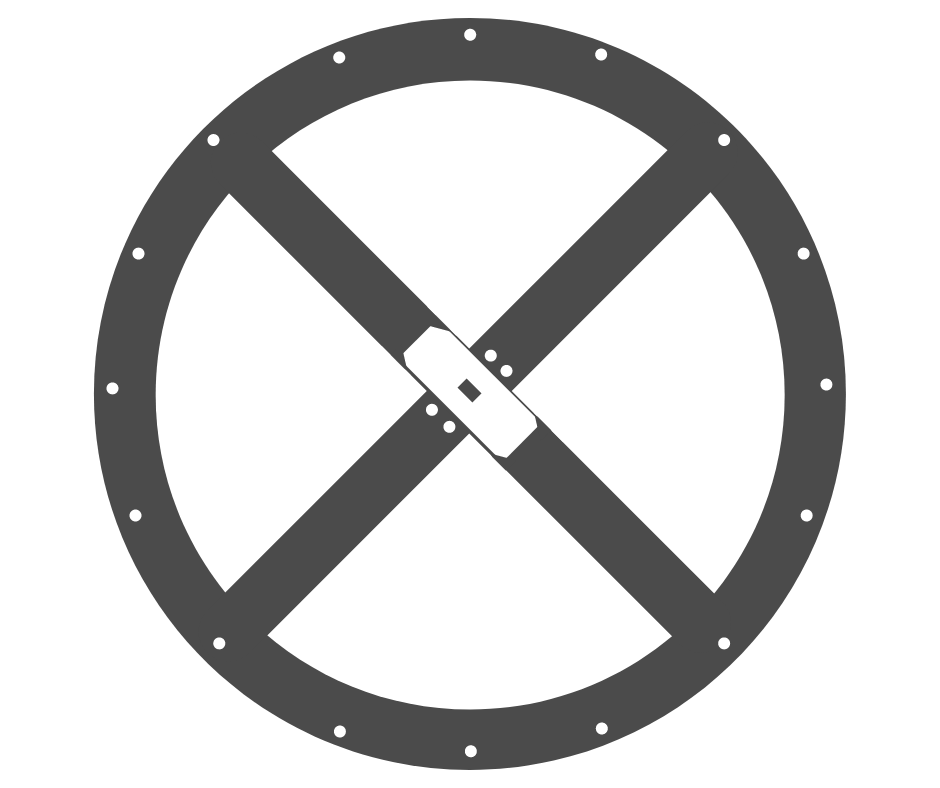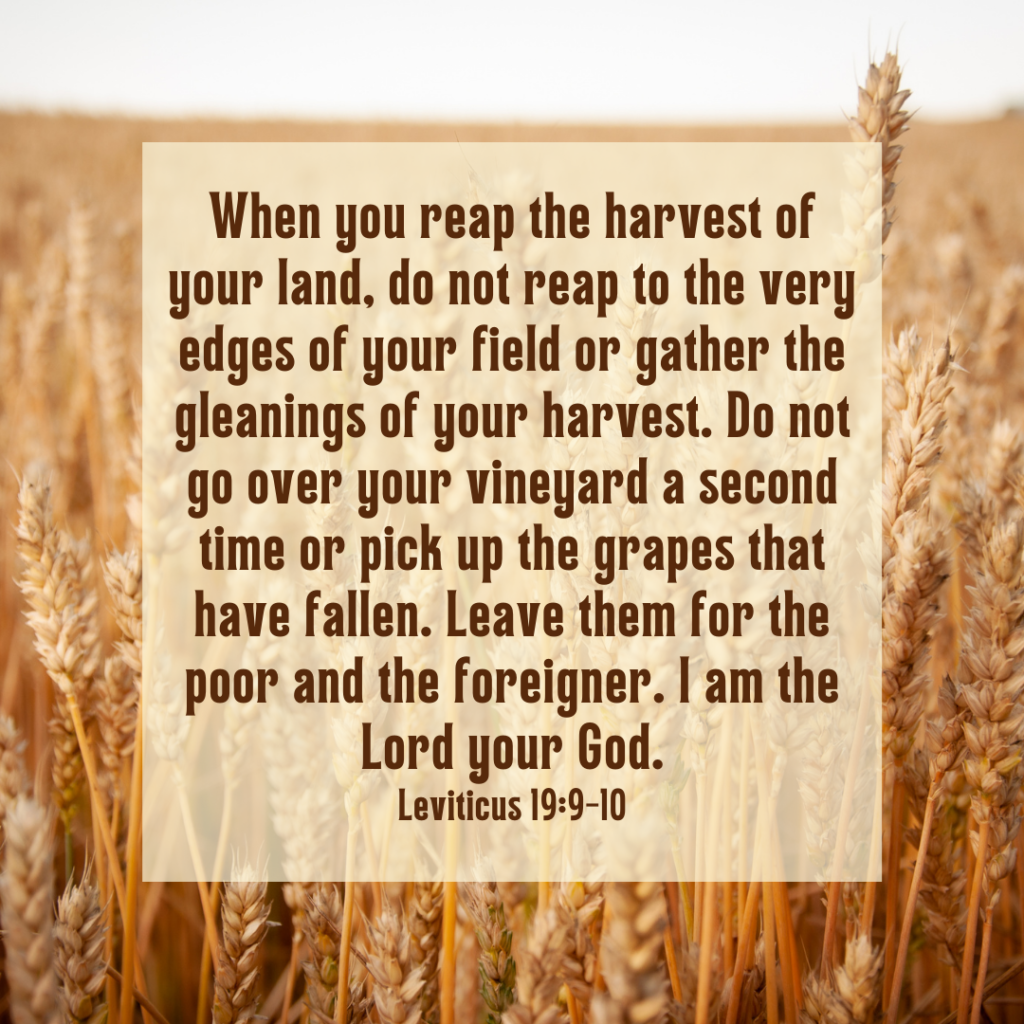When you reap the harvest of your land, do not reap to the very edges of your field or gather the gleanings of your harvest. Do not go over your vineyard a second time or pick up the grapes that have fallen. Leave them for the poor and the foreigner. I am the Lord your God.
Leviticus 19:9-10
“What I earn is mine, ALL mine, to do with what I want.” That’s the message our culture tells us again and again. Yet the scripture above clearly tells us that the “mine, all mine” attitude existed some 2,500 years ago as well. It’s hard-wired into us.
Our sinful human nature leads us to claim all we can for ourselves, which is why for thousands of years and up to the present God has called faithful people to live a better way. In this passage, “the Lord your God” instructs farmers and vintners to harvest only once, and not to the very edges of their land, and to leave the remnants of the harvest to the poor and the foreigner – people on the margins scavenging for their daily bread.
The teaching encourages landowners to find sufficiency in their first harvest, to be content that their needs are met, and then be generous with what is left over. Today, Leviticus 19:9-10 challenges us whose “harvests” of income are more than sufficient to satisfy our immediate needs. Do we have to take it all? What can we give for the needy?
In this traditional season of harvest, what blessings can you count from the last year? (Take a few minutes to prayerfully consider this, and make a list). Does your harvest more than adequately meet your needs?
Now prayerfully consider how much you can generously “leave” for the needy? Consider this in making a year-end contribution to your congregation, or in determining a pledge for 2022.
—Rob Blezard
Copyright © 2021, Rev. Robert Blezard. Pastor Blezard serves as pastor of St. Paul Lutheran Church, Aberdeen, MD, and works as content editor for www.stewardshipoflife.org. He blogs at www.thestewardshipguy.com.


